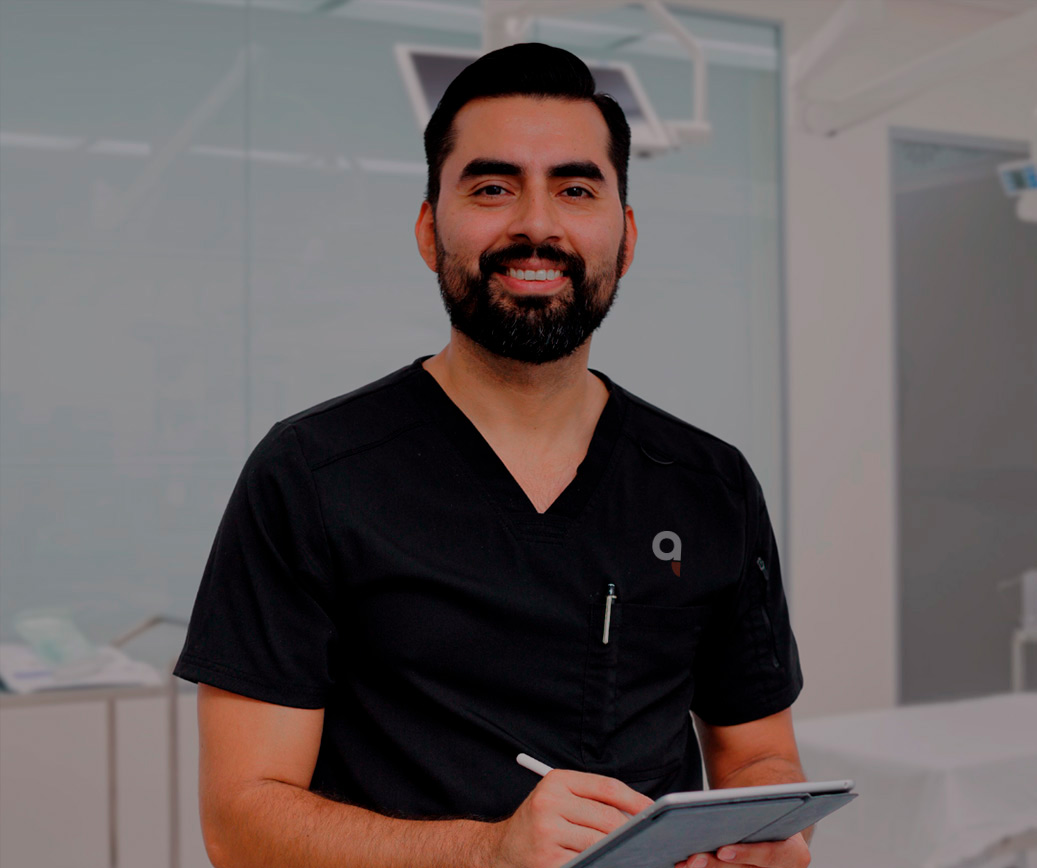
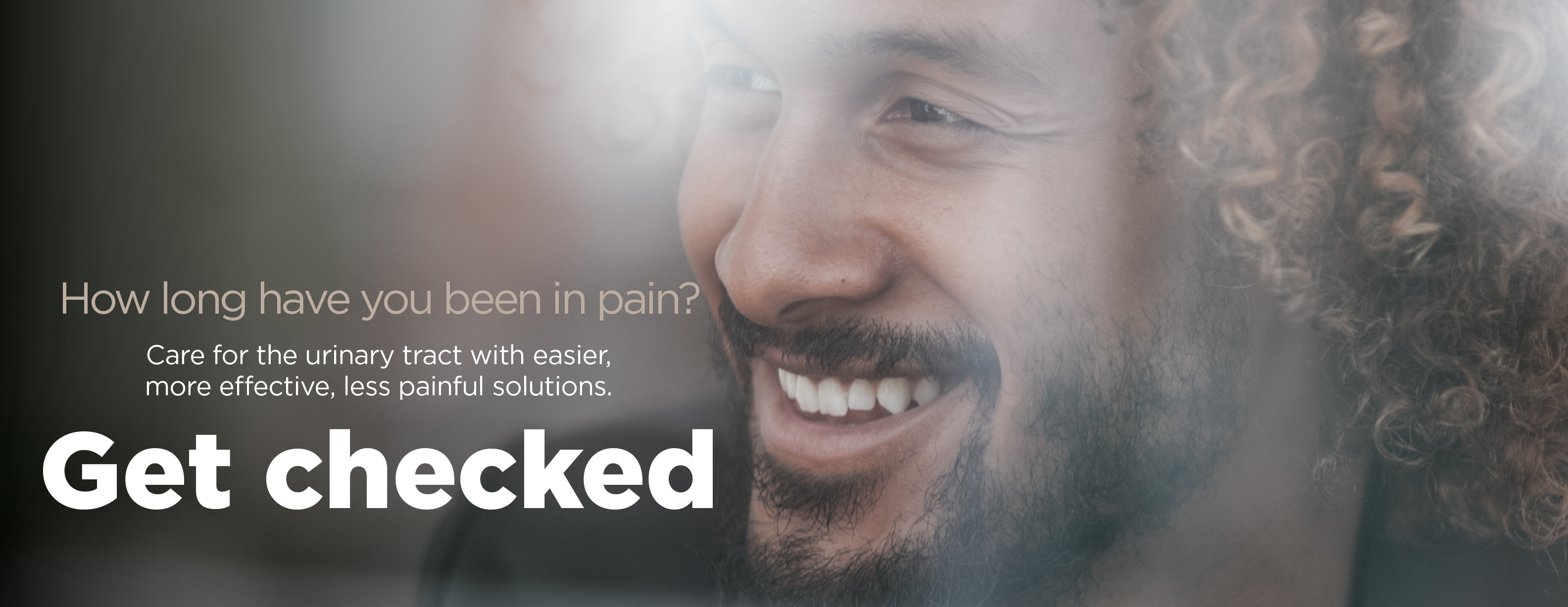
Specialized Care
Regain your health. If you’re dealing with a medical condition,
don’t wait—feeling this way is not normal.
Prostate Conditions
There are many types of prostate conditions; one of them is prostatitis—inflammation (swelling and pain) of the prostate. It is the most common prostate problem in men under the age of 50. There are different types of prostatitis, which is why it’s important to have a medical evaluation.
Symptoms
- Frequent need to urinate
- Urgent trips to the bathroom but passing only a small amount of urine
- Urinary incontinence or dribbling after urination
- Weak urine stream
- Inability to urinate at all (this is a medical emergency)
- Blood in the urine or urine with an unusual smell or color
- Fever, chills, or body aches
- Significant discomfort or pain during urination or after ejaculation
Medical Alternatives
Knowing your medical history, symptoms, and family health history, as well as undergoing a physical examination, are the most important steps to begin an accurate diagnosis.
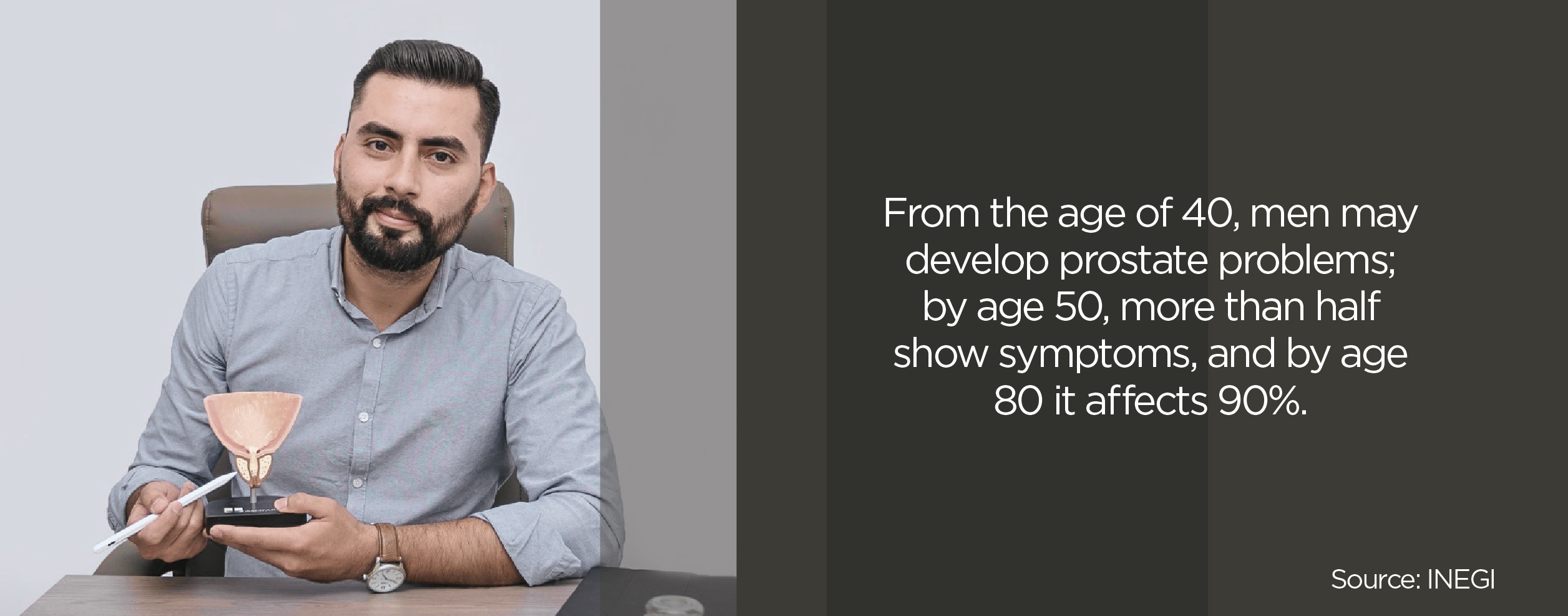
Prostate Cancer Screening
Men aged 50–70
Let’s leave the myths behind! At this age, men play an important role in their work,
social, and family lives. Early detection is vital, as timely treatment can help
maintain a completely normal quality of life.
Risk Factors
- Linked to being overweight, but having close family members with prostate cancer (father or brothers) more than doubles the risk.
- Most advanced cases occur because men never went for a check-up—often due to embarrassment, stigma, or persistent myths in society.
Medical Alternatives
Robot-assisted surgery offers greater precision, less bleeding,
better outcomes, and helps preserve urinary continence and erectile function.
DA VINCI ROBOT (Intuitive Surgical)
Certified: Dr. Carlos López (2023)
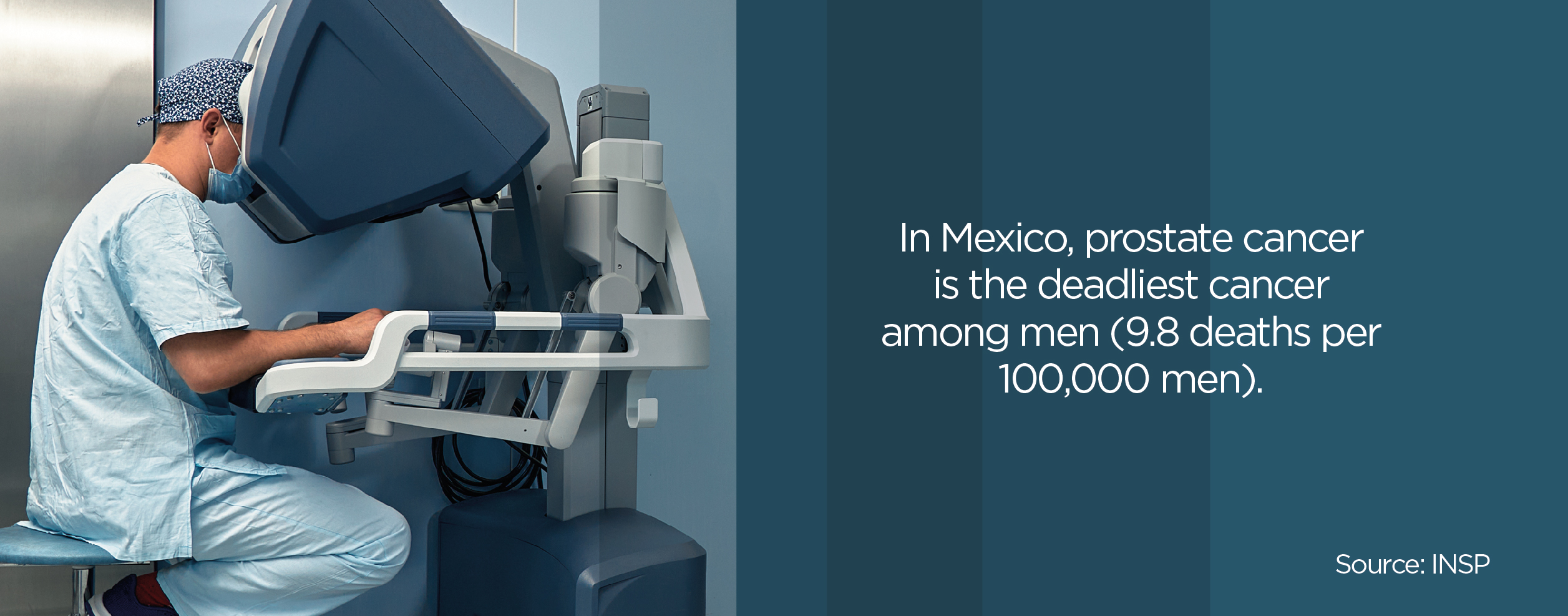
Benign Prostatic Enlargement
From the age of 45, men may begin to experience prostate problems. Prostate enlargement, cancer, and prostatitis are three different conditions. Inflammation is treated with anti-inflammatory medication, while prostate enlargement requires a different approach. If left untreated, it can cause irreversible bladder damage, lead to urinary retention that may require a catheter, and increase the risk of developing bladder stones.
Symptoms
- Difficulty urinating
- Decreased urine stream strength (weak stream)
- Frequent urination
- Waking up at night to urinate
- Urinary dribbling or retention
- Urgency to urinate
Medical Alternatives
The best treatment option available today is Holmium Laser Enucleation of the Prostate (HoLEP)—considered the gold standard for prostate surgery due to its advanced technology and excellent outcomes. This is a definitive treatment and does not require further medication.
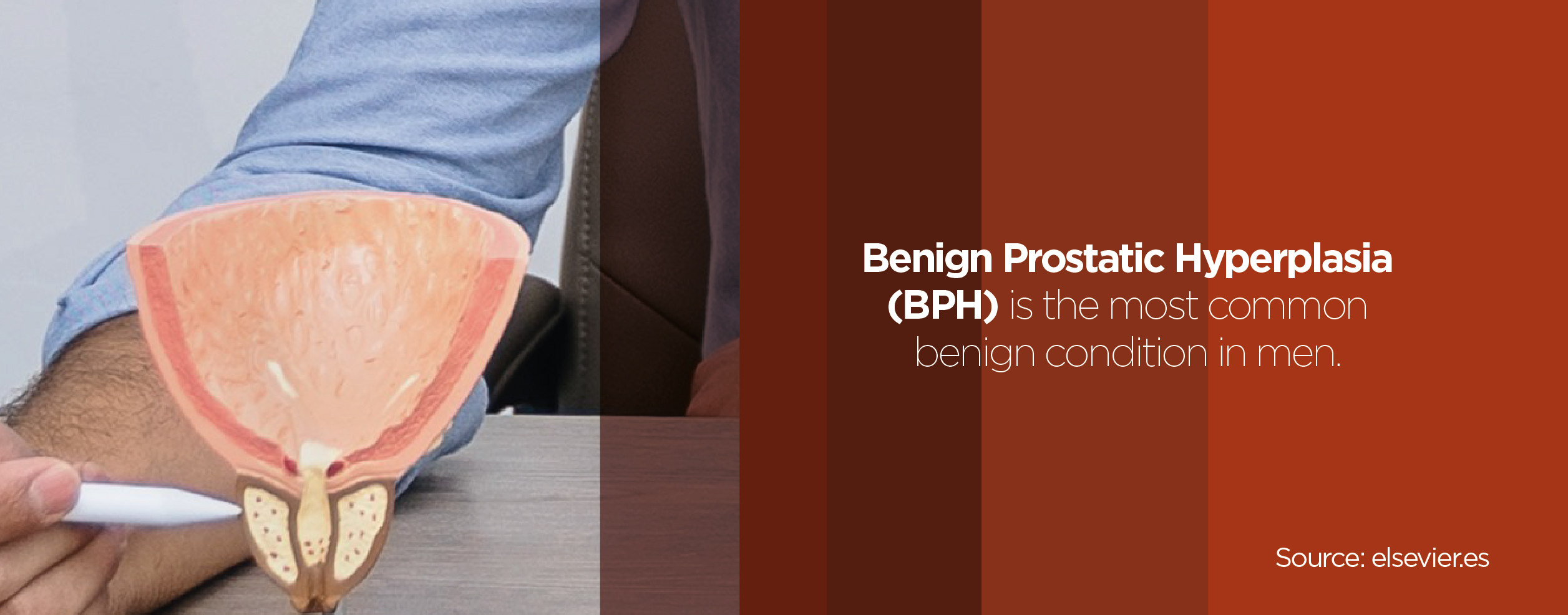
Renal Lithiasis
Stones in the kidneys or urinary tract.
The important thing is to determine if there are more stones or why the first one formed, as there are hereditary forms of kidney stones.
Why do stones form? Multiple factors. Do soft drinks contribute to stone formation? Yes—sugary beverages can contribute to the development of kidney stones.
Symptoms
- Pain — renal colic is usually an intense cramping pain in the lower back
- Nausea and vomiting
- Passing stones spontaneously in the urine
Medical Alternatives
Surgical treatment to remove or break the stone is highly successful. This is a definitive treatment to resolve the problem, control pain, and prevent complications.
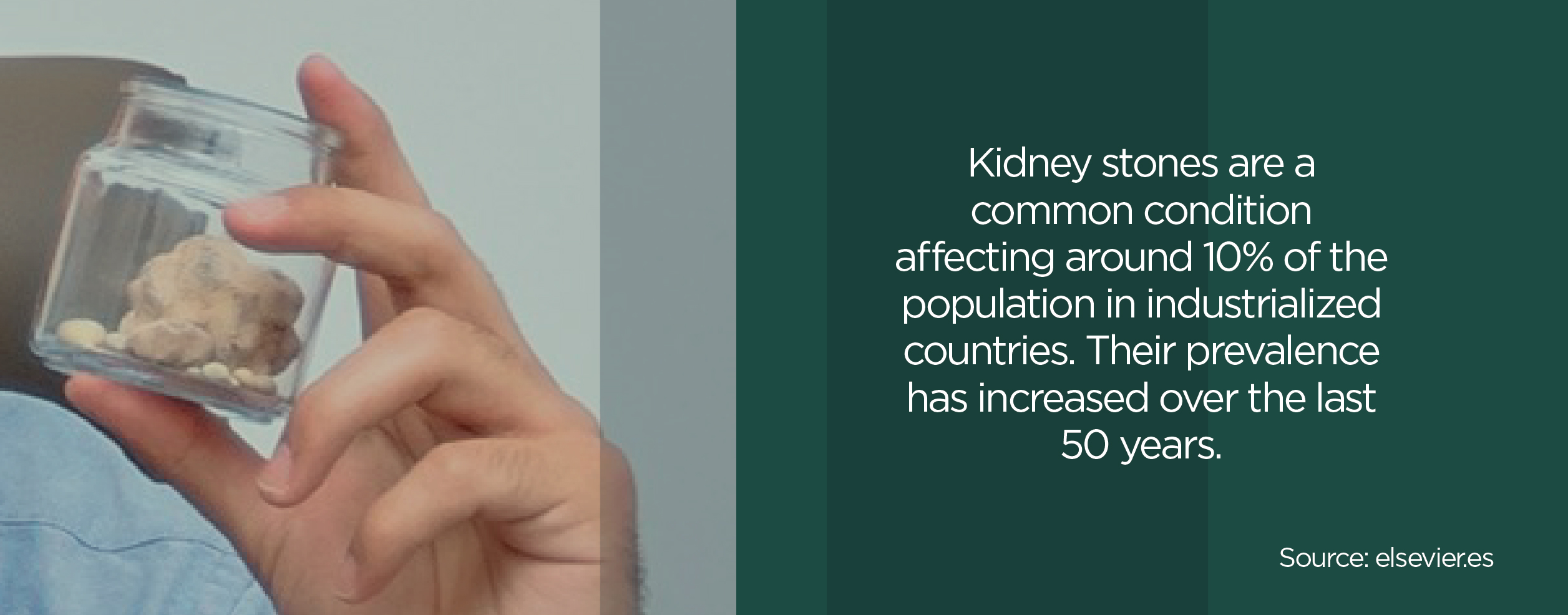
Testicular Conditions
Men (all ages)
There are various testicular conditions that can affect children, adolescents, and adults. Common conditions include testicular cancer, testicular cysts, hydrocele, varicocele, orchitis, epididymitis, and varicocele.
Symptoms
- Sudden, severe pain with swelling — typical of testicular torsion and trauma.
- Severe, progressive pain as occurs in testicular inflammation (orchitis and epididymitis).
- Feeling of heaviness — characteristic of varicocele.
- Gradual swelling and enlargement of the testicle — characteristic of hydrocele.
- Lumps or protrusions from the testicle — characteristic of testicular cancer.
Medical Alternatives
Testicular self-examination is an easy and cost-effective way to detect testicular lesions early.
Treatment may include antibiotics for infections such as orchitis or epididymitis, or surgery for varicocele, hydrocele, testicular tumors, epididymal tumors (adenomatoid tumor), cord tumors (leiomyoma), torsion, and other conditions.
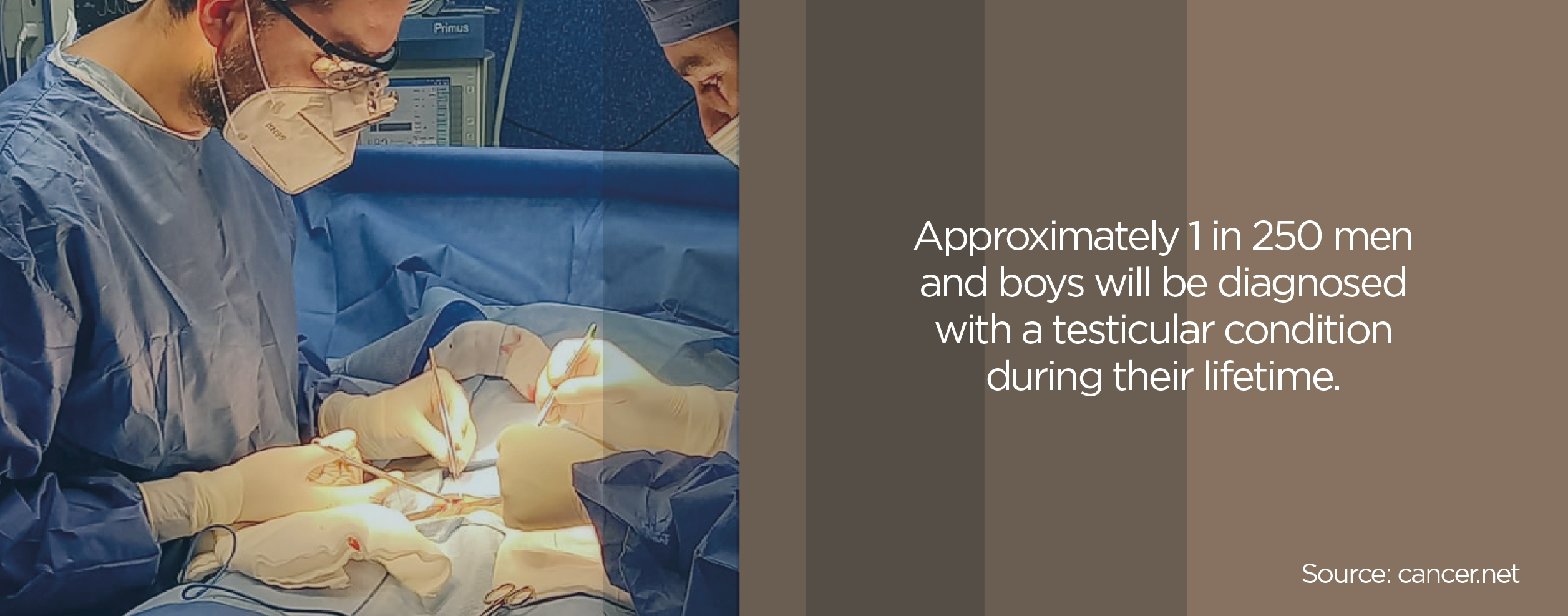
Bladder Conditions
Men and women
Is it serious? Some urinary tract infections can be easy to treat, but they can also become complicated and, in severe cases, lead to life-threatening infections.
Symptoms
- Urinary discomfort
- Burning sensation or pain
- Changes in the appearance of urine
- Foul-smelling urine
- Fever (common in diabetic patients)
Medical Alternatives
Should you take antibiotics? Yes, but it’s essential to perform a urine test (culture) before prescribing antibiotics, to avoid giving them blindly.
Other Conditions
- Cystitis (inflammation of the bladder)
- Urinary incontinence (more common in women)
- Enuresis (bed-wetting during the night)
- The most serious condition: bladder cancer

Treatments & Specialties
Kidney Cancer
Peyronie’s Disease
Urinary Incontinence
Testicular Cancer
Enuresis
Infertility
Bladder Cancer
Epididymitis
UTI
Circumcision
STD
Orchitis
Cystitis
Hematuria
Varicocele
Erectile Dysfunction
Hydrocele
HPV

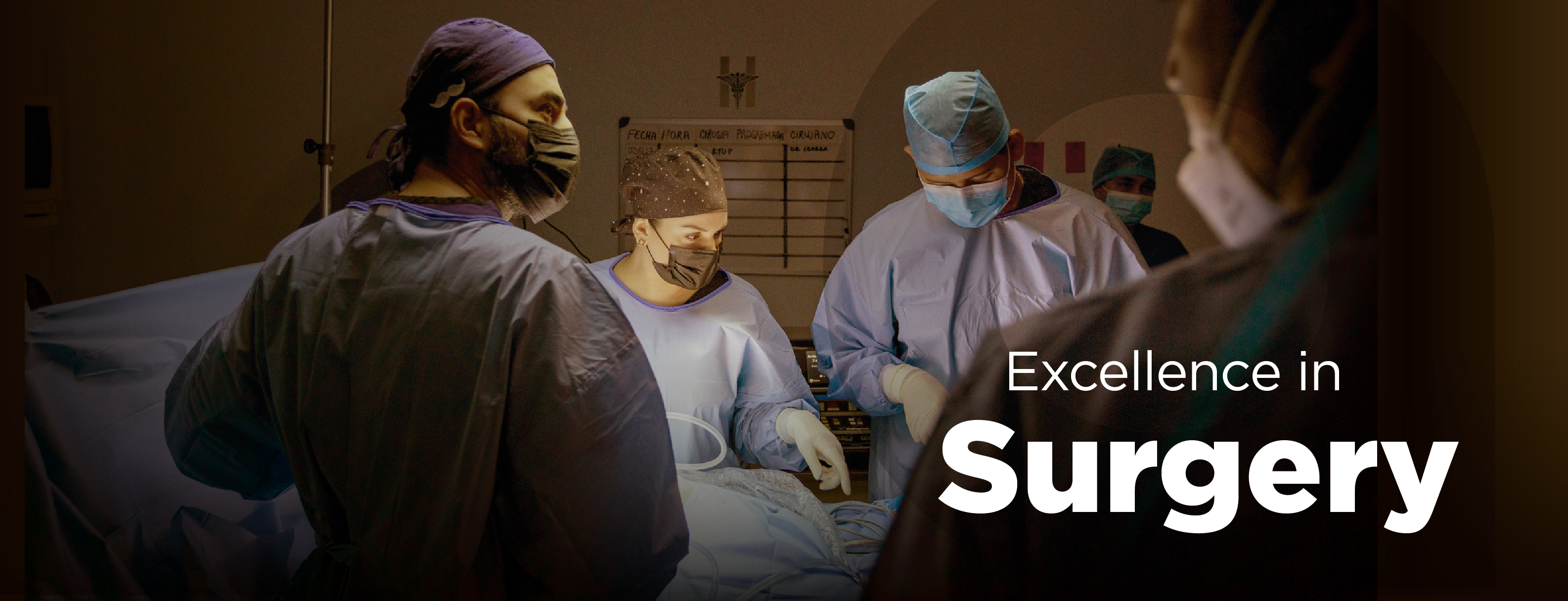
A Lasting Solution
If your diagnosis requires surgery, at Apex we are experienced surgeons. We offer
different surgical approaches to meet each patient’s specific needs.
HoLEP
PROSTATE SURGERY
The Holmium Laser Enucleation of the Prostate (HoLEP) procedure is a highly effective option for treating benign prostatic enlargement that causes obstruction and urinary symptoms.
LAPAROSCOPIC
MINIMALLY INVASIVE SURGERY
Surgery performed through small incisions (1–2 cm) using a tiny camera called a laparoscope to see inside the body. It is a minimally invasive alternative to conventional open surgery.
DA VINCI
ROBOTIC SURGERY
The most advanced surgical instrument available today. The surgeon operates from a console, controlling the arms of a robot, which enhances precision, dexterity, and provides a three-dimensional view inside the patient.
Benefits:
- Minimally invasive technique
- Faster recovery
- Less discomfort for the patient
- Shorter hospital stay
- Lower risk of complications
Benefits:
- Less pain
- Shorter recovery time
- Smaller incisions and better cosmetic results
- Lower risk of infection
- Less stress for the patient
Benefits:
- Better functional outcomes
- Smaller incisions
- Faster healing
- Less blood loss
- Shorter hospitalization
- Lower risk of infection
Locations
- - Blvd. Mauricio Castro Col. Magisterial
- - BlueNet Hospitals
- - East Cape Health Center
Phone:
(624) 239 3311
WhatsApp:
(624) 239 3311
Email:
contacto@apexurology.mx
Copyright APEX Urology – All Rights Reserved



